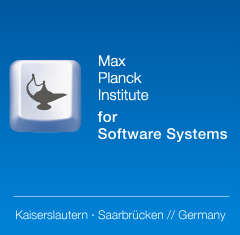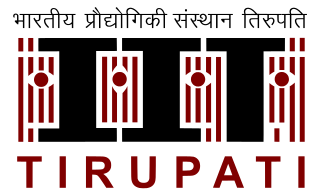The Department of Computer Science is a department of the Faculty of Mathematics, Physics and Informatics at the Comenius University in Bratislava, the capital of Slovakia. It is headed by Prof. RNDr. Branislav Rovan, Phd.
The Department of Computer Science is a department of the Faculty of Mathematics, Physics and Informatics at the Comenius University in Bratislava, the capital of Slovakia. It is headed by Prof. RNDr. Branislav Rovan, Phd.
The first comprehensive computer science curriculum in Czechoslovakia (now Slovakia) was introduced at the Faculty in 1973. The department, established in 1974, continues to be responsible for organizing the major part of the undergraduate and graduate computer science education to this date. The distinguishing feature of the curriculum has been a balanced coverage of the mathematical foundations, theoretical computer science, and practical computer science. The part of the curriculum covered by the department at present includes courses on computer architecture, system software, networks, databases, software design, design and analysis of algorithms, formal languages, computational complexity, discrete mathematics, cryptology, data security and others.
The department succeeded several times in project applications within the TEMPUS Programme of the EU. The projects CIPRO and „Neumann Network“ helped to build the departmental hardware infrastructure and to establish the expertise in Unix workstation technology, networking, and structured document processing. The CUSTU PARLAB parallel computing laboratory run jointly with the Department of Informatics of the Faculty of Electrical Engineering and Informatics of the Slovak Technical University also resulted from one of these projects. Furthermore, the department participated in project LEARN-ED under the COPERNICUS Programme and built a multimedia laboratory.
The department has been involved in the organization of one of the top European conferences in theoretical computer science ? MFCS ? each time it took place in Slovakia. Further conferences recently organized or co-organized by the department include SOFSEM '98 and DISC '99. Besides, the department houses the secretariat of the European Association for Theoretical Computer Science, of the Slovak Society for Computer Science and of the Association for Security of Information Technologies (ASIT).
Research in theoretical computer science and discrete mathematics has the longest tradition in the department. Most notably, the result of Róbert Szelepcsényi on the closure of nondeterministic space under complement, independently obtained also by N. Immerman, brought the Gödel Prize of the ACM and EATCS to both of them in 1995. More recently research in parallel and distributed computing, cryptology and information security, and in software development has been initiated. The department is involved in international cooperation on the development of the structured document editor within the Euromath Project. The department has many international contacts, succeeded in research project application (project ALTEC ? „Algorithms for Future Technologies“) with partners from EU, and also has two research grants from the Slovak Grant Agency.
A network consisting of 20 workstations (Sun, DEC and Hewlett-Packard in two workstation labs), Parsytec (with 20 transputers and OS Parix), and standard PCs connected to a network.

Computer science is the study of computation, information, and automation. Computer science spans theoretical disciplines to applied disciplines. Though more often considered an academic discipline, computer science is closely related to computer programming.
Computer science is the study of the theoretical foundations of information and computation and their implementation and application in computer systems. One well known subject classification system for computer science is the ACM Computing Classification System devised by the Association for Computing Machinery.

Theoretical computer science (TCS) is a subset of general computer science and mathematics that focuses on mathematical aspects of computer science such as the theory of computation, formal language theory, the lambda calculus and type theory.

The Department of Computer Science is one of nine departments in the University of the Philippines Diliman College of Engineering.

MSU Faculty of Computational Mathematics and Cybernetics (CMC) (Russian: Факультет вычислительной математики и кибернетики (ВМК)), founded in 1970 by Andrey Tikhonov, is a part of Moscow State University.

The École nationale supérieure d'informatique et de mathématiques appliquées, or Ensimag, is a prestigious French Grande École located in Grenoble, France. Ensimag is part of the Institut polytechnique de Grenoble. The school is one of the top French engineering institutions and specializes in computer science, applied mathematics and telecommunications.

The College of Computer Studies (CCS) is one of the eight colleges of De La Salle University. It was established in 1981 as the Center for Planning, Information, and Computer Science offering only a Bachelor of Science degree in Computer Science. The department was formally declared as a college in 1984. In 1990, the college was transferred to its new building, the INTELLECT Building, which was eventually renamed as the Gokongwei Building. In 1996 the college was granted semi-autonomous status along with the Graduate School of Business which led to the establishment of De La Salle-Professional Schools, Inc. The college became a part of De La Salle Professional Schools but later transferred back to the university.

The Max Planck Institute for Software Systems (MPI-SWS) is a computer science research institute co-located in Saarbrücken and Kaiserslautern, Germany. The institute is chartered to conduct basic research in all areas related to the design, analysis, modelling, implementation and evaluation of complex software systems. Particular areas of interest include programming systems, distributed and networked systems, embedded and autonomous systems, as well as crosscutting aspects like formal modelling and analysis of software systems, security, dependability and software engineering. It joins over 80 other institutes run by the Max-Planck-Gesellschaft, which conduct world-class basic research in medicine, biology, chemistry, physics, technology and the humanities.

The Donald Bren School of Information and Computer Sciences, also known colloquially as UCI's School of ICS or simply the Bren School, is an academic unit of University of California, Irvine (UCI), and the only dedicated school of computer science in the University of California system. Consisting of nearly three thousand students, faculty, and staff, the school maintains three buildings in the South-East section of UCI's undergraduate campus, and maintains student body and research affiliations throughout UCI.
The Advanced Learning and Research Institute (ALaRI), a faculty of informatics, was established in 1999 at the University of Lugano to promote research and education in embedded systems. The Faculty of Informatics within very few years has become one of the Switzerland major destinations for teaching and research, ranking third after the two Federal Institutes of Technology, Zurich and Lausanne.

Tashkent University of Information Technologies named after Muhammad ibn Musa al-Khwarizmi often abbreviated as ТАТU or TUIT is one of the largest universities in Uzbekistan, located in its capital Tashkent. Tashkent University of Information Technologies was in 1955 founded as Tashkent Electro Technical Institute of Communication and it was the major and only producer of communication engineers for the Central Asian region. Today, it is one of the major universities to nurture ICT talent in Uzbekistan. The university was named after Al-Khwarizmi by a presidential resolution to further boost its role within the nation and abroad.
Informatics is the study of computational systems. According to the ACM Europe Council and Informatics Europe, informatics is synonymous with computer science and computing as a profession, in which the central notion is transformation of information. In other countries, the term "informatics" is used with a different meaning in the context of library science, in which case it is synonymous with data storage and retrieval.
Science and Technology is a faculty at Aarhus University. Science and Technology offers sixteen BSc degree programmes, eight BEng degree programmes and twenty-eight MSc degree programmes, nine of which are MEng degree programmes. ST also offers a small number of further and continuing education programmes. Niels Chr. Nielsen is the dean of Science and Technology.
Jan van Leeuwen is a Dutch computer scientist and Emeritus professor of computer science at the Department of Information and Computing Sciences at Utrecht University.

Indian Institute of Technology Tirupati is an autonomous engineering and technology education institute located in Tirupati, Andhra Pradesh. Initially mentored by IIT Madras, now IIT Tirupati, the fastest growing 3rd generation IIT is located in Yerpedu, Tirupati, and has a size of 539 acres, including a proposed research park. The Foundation stone for IIT Tirupati was laid by the Union Minister Smriti Irani and the then Union Minister and former Vice President of India M.Venkaiah Naidu and the then chief minister of Andhra Pradesh N. Chandrababu Naidu.
Grigory Yaroslavtsev is a Russian-American computer scientist. He is an assistant professor of computer science at George Mason University. Previously he was an assistant professor of computer science at Indiana University and the founding director of the Center for Algorithms and Machine Learning (CAML) at Indiana University.

The TUM School of Computation, Information and Technology (CIT) is a school of the Technical University of Munich, established in 2022 by the merger of three former departments. As of 2022, it is structured into the Department of Mathematics, the Department of Computer Engineering, the Department of Computer Science, and the Department of Electrical Engineering.